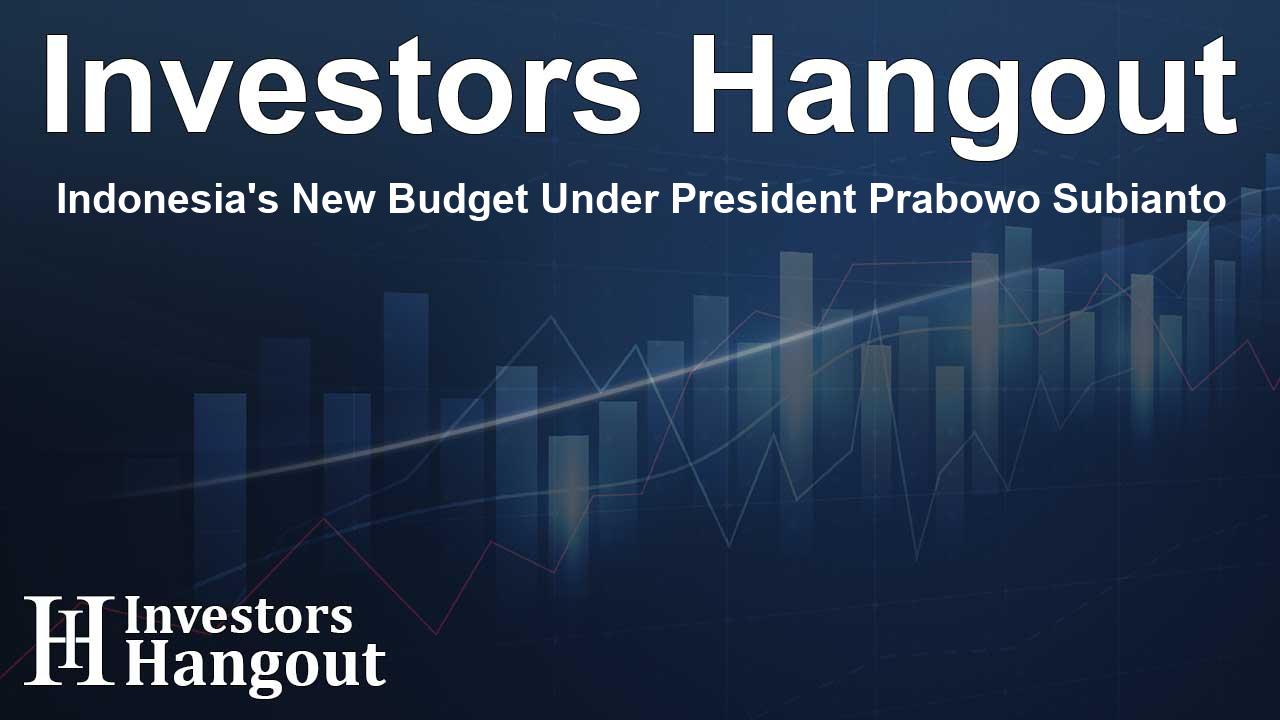Indonesia's New Budget Under President Prabowo Subianto

Introduction to Indonesia's Budget for 2025
Indonesia's parliament has recently approved a significant budget for 2025, marking the first budget under the leadership of President-elect Prabowo Subianto. The finalized spending plan is set at an impressive 3,621.3 trillion rupiah, equivalent to around $237 billion. This amount reflects Prabowo's commitment to addressing various economic challenges and opportunities during his term.
Economic Growth Projections
The newly approved budget anticipates a modest economic growth rate of 5.2%. This represents a slight uptick from the previous year's forecast of 5.1%. Such growth is crucial as it aims to enhance Indonesia's overall development while achieving sustainable economic progress.
Revenue Targets
For this period, the government aims to secure a revenue target of 3,005.1 trillion rupiah. Meeting this target will be essential for funding the key initiatives outlined in the budget, ensuring that Prabowo Subianto's administration can implement its programs effectively.
Key Programs Included in the Budget
This budget embraces several vital programs that reflect Prabowo's priorities. One of the standout initiatives is the introduction of a free meal policy for children, which is expected to require around 71 trillion rupiah. This program aims to alleviate hunger and promote better health and educational outcomes for the youth.
Investments in Health and Education
In addition to the meal program, the budget allocates funds for free health check-ups, construction of new hospitals, and renovation of existing schools. These efforts underline the administration's commitment to enhancing health and education services throughout the nation.
Food Security Initiatives
Understanding the importance of food independence, the budget also places significant emphasis on food security initiatives. These will be critical for ensuring that all citizens have access to essential food resources, thus promoting nutrition and well-being.
Conclusion: Looking Ahead
As President Prabowo Subianto prepares to commence his five-year term, the passing of this budget signifies a strong start, outlining the fiscal strategies and priorities that will shape Indonesia's future. With a mix of programs aimed at economic growth, health, education, and food security, his administration looks poised to make impactful changes during its tenure.
Frequently Asked Questions
What is the total spending plan for Indonesia's 2025 budget?
The total spending plan set at 3,621.3 trillion rupiah, which is roughly $237 billion.
What growth rate does the budget anticipate?
The budget anticipates an economic growth rate of 5.2% for 2025.
What key programs are included in President Prabowo's budget?
Key programs include a free meal policy for children, free health check-ups, and the construction of hospitals and school renovations.
When will President Prabowo Subianto's term start?
President Prabowo Subianto's term is set to begin on October 20.
How does this budget aim to address food security?
The budget includes significant investments in food security initiatives to ensure all citizens have access to necessary food resources.
About Investors Hangout
Investors Hangout is a leading online stock forum for financial discussion and learning, offering a wide range of free tools and resources. It draws in traders of all levels, who exchange market knowledge, investigate trading tactics, and keep an eye on industry developments in real time. Featuring financial articles, stock message boards, quotes, charts, company profiles, and live news updates. Through cooperative learning and a wealth of informational resources, it helps users from novices creating their first portfolios to experts honing their techniques. Join Investors Hangout today: https://investorshangout.com/
Disclaimer: The content of this article is solely for general informational purposes only; it does not represent legal, financial, or investment advice. Investors Hangout does not offer financial advice; the author is not a licensed financial advisor. Consult a qualified advisor before making any financial or investment decisions based on this article. The author's interpretation of publicly available data shapes the opinions presented here; as a result, they should not be taken as advice to purchase, sell, or hold any securities mentioned or any other investments. The author does not guarantee the accuracy, completeness, or timeliness of any material, providing it "as is." Information and market conditions may change; past performance is not indicative of future outcomes. If any of the material offered here is inaccurate, please contact us for corrections.